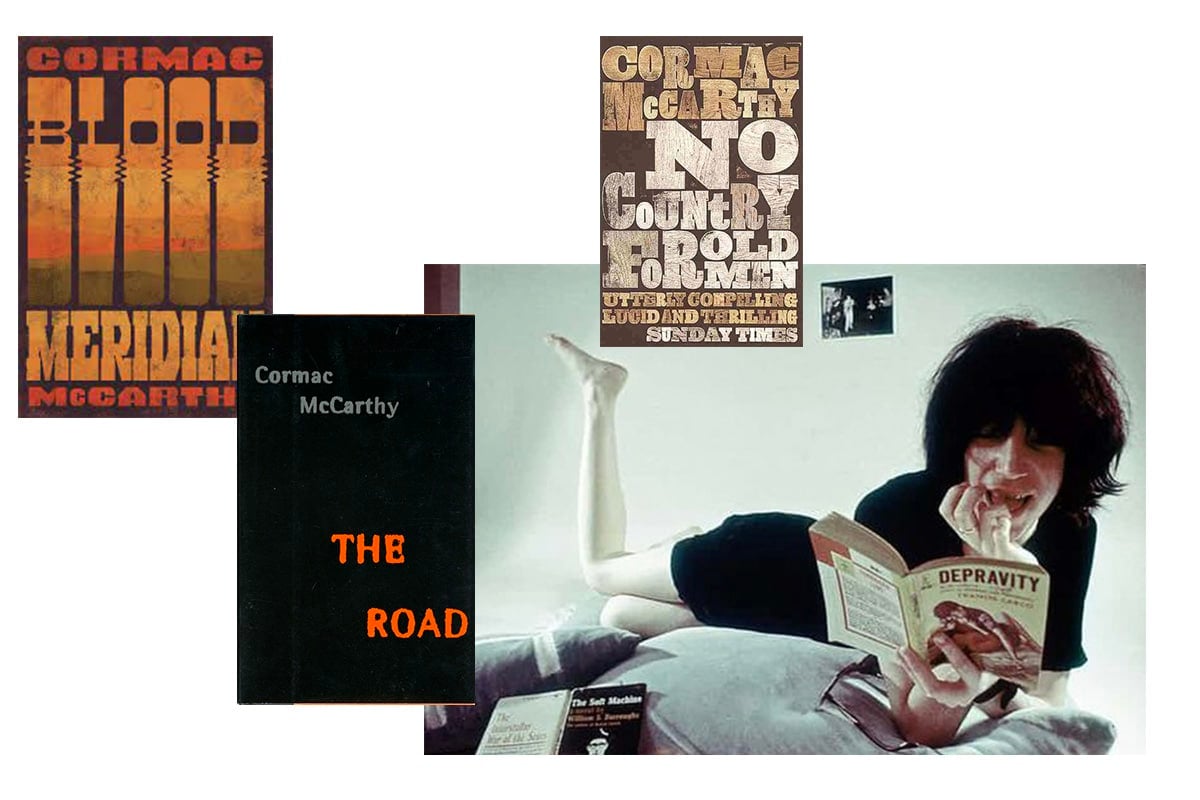
“Keep a little fire burning; however small, however hidden.” — Cormac McCarthy
Cormac McCarthy, the Pulitzer Prize-winning author of The Road, has died aged 89. His death was confirmed by his son, John McCarthy, who shared the author passed away from natural causes at his Santa Fe home in New Mexico.
His books wove a macabre tapestry of America and humanity, one with the capacity for violence, the potential for apocalyptic ruin and yet, a desperate instinct for survival. Over his life, he managed to publish a dozen novels, including modern classics like Blood Meridian, The Road and No Country For Old Men, which was soon after made into a film directed by the Coen brothers and led by Javier Bardem.
Cormac McCarthy, maybe the greatest American novelist of my time, has passed away at 89. He was full of years and created a fine body of work, but I still mourn his passing.
— Stephen King (@StephenKing) June 13, 2023
For all his success, McCarthy was a recluse, giving only a handful of interviews during his career. He told Wall Street Journal in 2009 that his idea of a perfect day was "sitting in a room with some blank paper. That’s heaven," he said. "That’s gold and anything else is just a waste of time."
As we mull over the legacy left by Cormac McCarthy and his writing, below we're bringing you a shortlist of his best books.
Blood Meridian (1985)
A book that echoes the tendencies of Flannery O'Connor, McCarthy's literary idol, as well as the work that's widely regarded as his best. Blood Meridian is not short of violence. It follows The Kid (previously The Child, and in the final chapter, The Man) a 14-year-old runaway who joins the Glanton gang, a group of outlaws notorious for murdering Native American people on the western frontier. Set in the 1950s, the novel is shrieking with bloodlust, robberies, gang violence, and scalp hunting.
All the Pretty Horses (1992)
The first novel in McCarthy's accessible and beloved Border trilogy (The Crossing, Cities of the Plain), the book brought McCarthy to a wider audience and is once again set on the Texas-Mexico border, trailing two green cowboys in search of a ranch and the lives that unfold from their station. It won the National Book Award for Fiction upon its release.
No Country for Old Men (2005)
Cormac McCarthy intended No Country for Old Men to be a screenplay, which he first wrote in 1984. There's a certain symmetry in knowing that Ethan and Joel Coen would fashion it into an Oscar-winning film two years after the book was published. If you haven't interacted with the book or movie, it's set in arid West Texas and opens with a drug deal gone wrong at the Texas-Mexico border in 1980. When Llewelyn Moss takes off with the money left at the scene of the crime, he finds himself hunted by a murderous sociopath, who is himself being tracked down by the county sheriff. It's a violent exploration of masculinity in isolation.
The Road (2006)
A father and son stare down the face of a post-apocalyptic America, armed with a single revolver holding two rounds and their own fierce determination to stay alive. Throughout their journey they come up against rapists and cannibals, along with hostile and uninhabitable earth before them. With great force, the novel throws down a vision of the world without hope, save for the tenderness between father and son. You can imagine why it won the Pulitzer Prize.
The Passenger (2022)
A year before his death, Cormac McCarthy emerged from a 16-year hiatus with not one, but two novels. The Passenger is the first in this two-part story about Bobby Western, a salvage diver and also the son of a noted nuclear physicist who helped split the atom and create the nuclear bomb. He is haunted by this legacy, as well as the death of his sister, who took her own life. The novel is characteristically tragic and potent and McCarthy began piecing it together as early as the mid-1980s.
Stella Maris (2022)
McCarthy's swansong. Instead of opening a world and failing to shut the door before he left, the author departed having tied up the many winding threads that made up The Passenger with Stella Maris, the companion read about Bobby's sister Alicia Western. It's the first time McCarthy has sent out a female protagonist, and critics have said its reads as such. Alicia is a walking smorgasbord of pathologies, and we learn from The Passenger she's ultimately doomed.
Image: Pinterest



